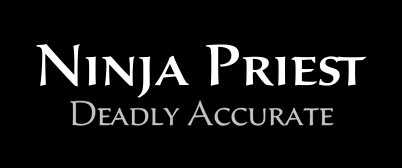Tuesday, January 4, 2011
February - The Florida Open - Universal Shooting Academy
May - The Columbus Cup - Aruba
October - The World Shoot - Greece
Monday, May 31, 2010
Sunday, February 7, 2010
Rihanna Shut Up and Drive - Practical Shooting
Practical shooting and as Rihanna puts it shut up and drive. This style of shooting may look easy but it is anything but that. Safety is always the first and foremost concern. This practical shooting video is a good example of the safe fun you can have. The range officer (behind shooter) is always maintaining a watchful eye to ensure that you are handling the firearm safely at all times. Some shooters are practicing self-defense shooting others are just out to have fun and still others are training for competition. Whatever the reason practical shooting is a great sport, so get involved and give it a try you are sure to meet some really wonderful people and who knows you might be the next champ.
Wednesday, February 3, 2010
How Do You Get Involved in the Sport of Practical Shooting?
The club's administration was courteous and professional and the instructor assigned to train me patiently explained the fundamentals of safe gun handling. Safety was stressed over and over and everything revolved around the concept of safety. I never admitted this to my instructor but all through my first class I was petrified that I would do something wrong.
Not all great pistol shooters make great instructors and that's a fact I learned later on, however in my first class I was lucky enough to have met one of the best instructors our club has to offer. He spoke calmly, but assertively he did not grow frustrated and impatient when I did not seem to be getting it quite right nor did he scowl or curse when I got it absolutely wrong. No this instructor encouraged me every time I turned up for training perhaps because he saw something that I did not. You see when you encourage someone really what you are doing is watering the seeds of greatness within them and fostering the development of their self-esteem.
Allow me to digress for a moment - if the only exposure you have ever had to firearms is through watching Hollywood I want you to throw out what you think you know - why? - Because its all wrong! Everything you see on TV regarding firearms is done for how good it looks on camera. You cannot bring anything from the silver screen into the real world with regard to handling firearms. At the rifle and pistol club I was exposed to over eleven weeks of training which centered on safe handling of firearms before I was allowed to participate in the clubs weekly shooting activities.
In retrospect it was a combination of learning a skill-at-arms, the personal discipline demanded to master the skill and the potential to test my skill in competition that kept me interested. Remember before then, my only exposure to guns was what I had seen on TV and read about in the news and it was mostly negative, therefore it was refreshing to learn that a skill-at-arms could be put to a more noble use such as sport shooting competitions.
Now, let's take a step forward to January 2009 because I want to skip the part where I spent an entire year standing up, kneeling down or laying down (prone) shooting at turning targets i.e. static shooting. The goal of that style of shooting was accuracy and shooting for the highest scores.
In January of 2009 the International Practical Shooting Confederation (IPSC) Barbados announced to the local rifle & pistol clubs that it would be sponsoring a Black Badge Safety Training Program. Successful completion of this training program would open the door to compete in IPSC matches locally, regionally and internationally.
The allure of IPSC is the challenge involved in safely controlling a full powered firearm while shooting a course of fire as quickly and as accurately as you can, hence the IPSC motto DVC- Diligentia, Vis, Celeritas (Accuracy, Power, Speed) was introduced to reflect these balanced elements.
I had the fundamentals of accuracy down, thanks to my previous year of service pistol training I was confident that I could hit the area of the target that I was aiming at. Now the challenge was to do it safely while running at top speed, shooting a large calibre firearm chambered for 38 Super, 9MM or .40SW.
Intrigued by the challenge, I launched into the classroom training and the weekends of practical exercises that make up a Black Badge Safety Program and soon realized that one, there are many really good people involved in this sport and two, this was alot of fun. In most countries where the use of firearms is allowed by law for sporting purposes you will find certified instructors who are qualified to teach the Black Badge Safety trainging programs. Successful completion of this international safety training provides the would be IPSC competitor with the knowledge and skills necessary to compete safely in IPSC matches around your country and the world.
Monday, February 1, 2010
What is the Sport of IPSC All About?
Sunday, January 31, 2010
BlackEyed Peas Showdown Tanfoglio XD(M) .40 IPSC
A little action clip from the last stage of the BRA's IPSC month end showdown. If you have not tried IPSC action shooting then let me be the first to tell you, its a real rush. Speed - Power - Accuracy turn it up and watch how we do it.
Friday, January 29, 2010
Boom Boom Pow by Black Eyed Peas - SA XD(M) .40
The "Great White" Open an IPSC Level II Match in Barbados on January 23rd and 24th 2010. For me it was the perfect opportunity to break in a new SA XD(M) .40SW. I placed 4th overall out of a field of 28 competitors and won the class C division.
